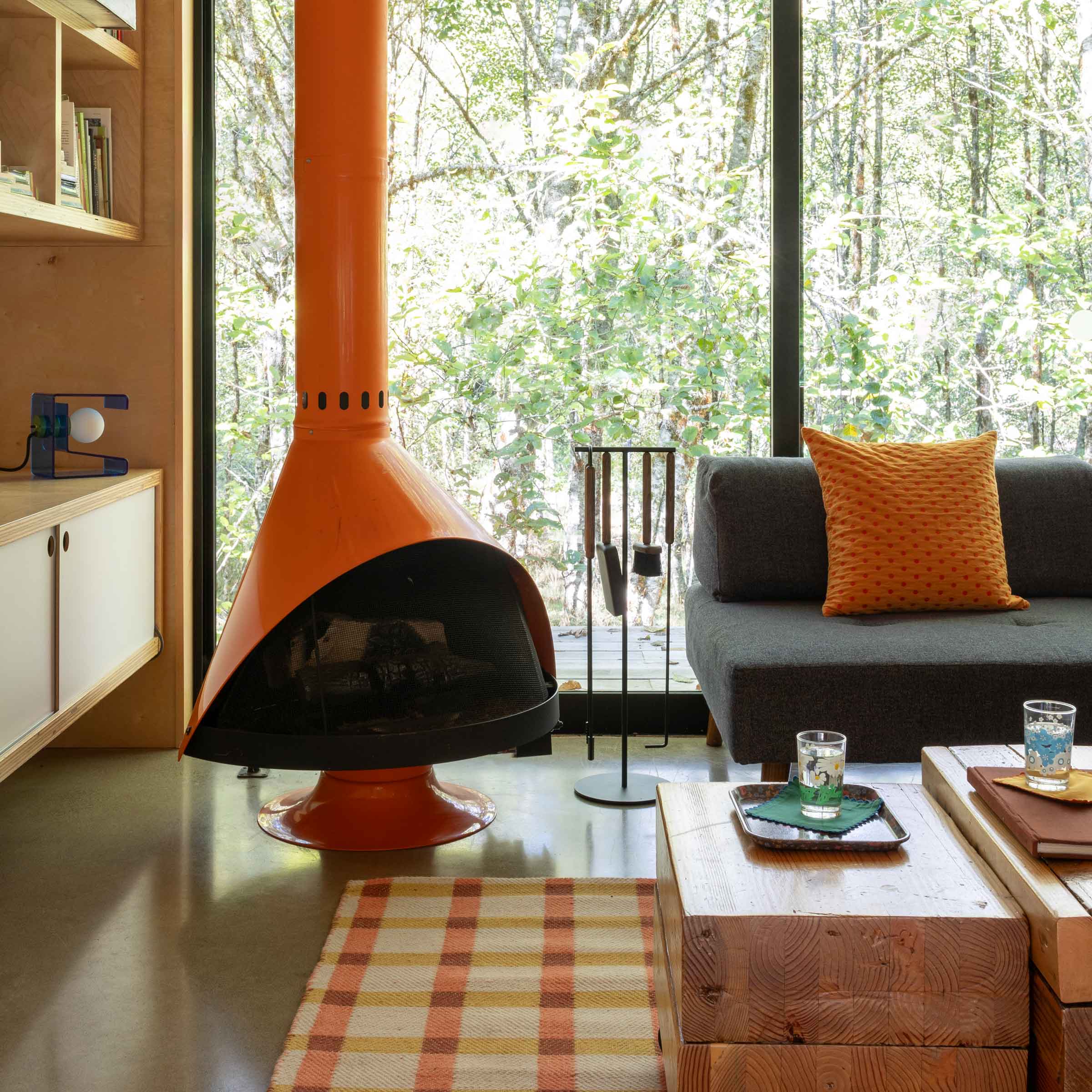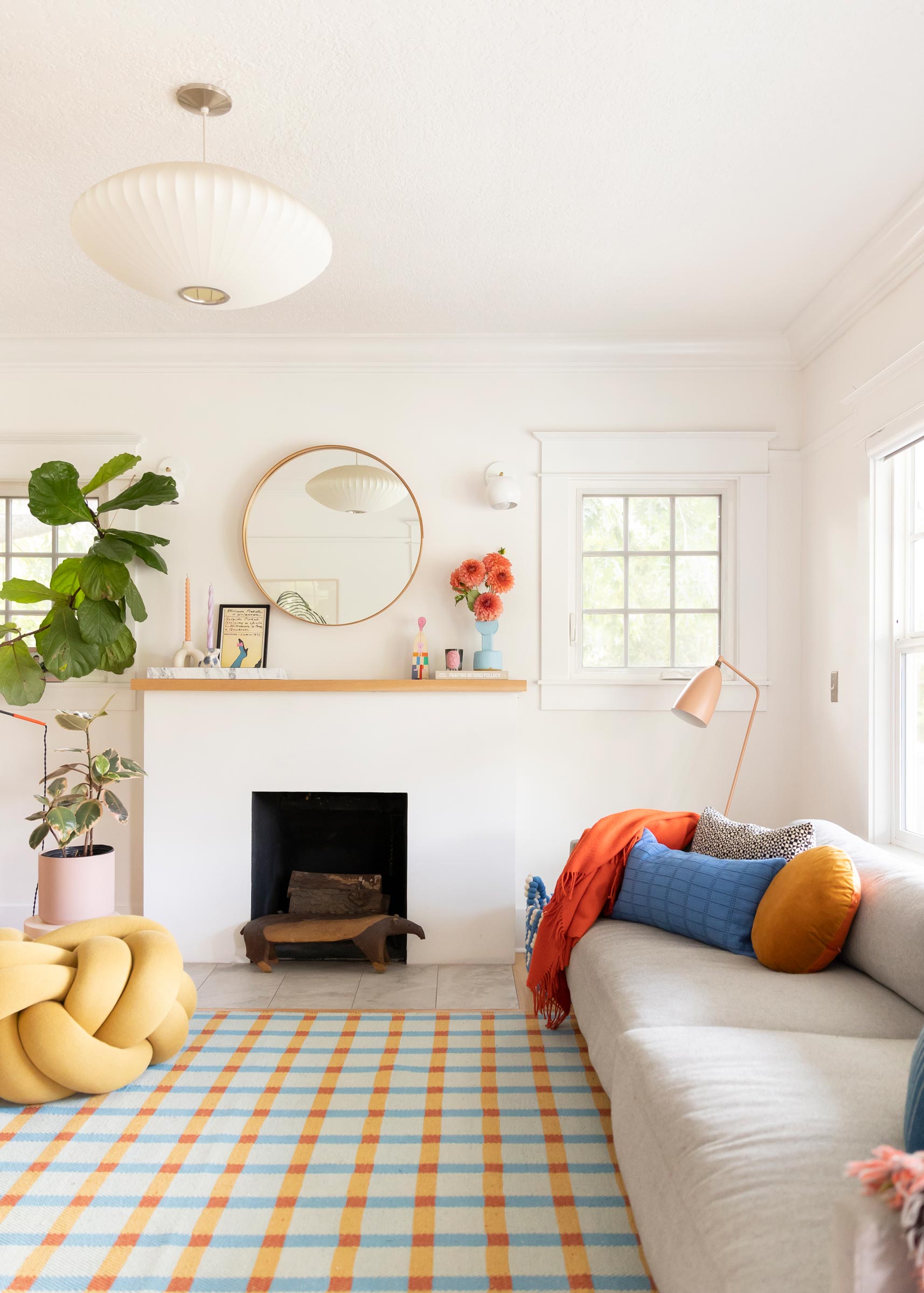Schoolhouse 101: Perfect Rug Placement

From adding cozy texture to making an interior statement, there are many reasons why we believe everyone should invest in a perfectly plush area rug. As it turns out, there may be some surprising science behind it too. According to psychologists, adding softness to your space slows down sound creating a less chaotic and inherently calm atmosphere. Over time, this can benefit your physical well-being, reduce stress, and even help with anxiety. If you're looking for an easy impactful upgrade, this post is for you. Whether you rent or your own, below, we share a few ground rules and layout options for perfecting rug placement throughout the home.

The first order of business is finding a living room rug large enough to cover your main furniture grouping (sofa, chairs, coffee table). While the chair legs don't have to all fit on top of the rug, it should be wide enough to feel spacious and leave ample room to walk between each piece. For reference, a comfortable distance between the sofa and coffee table usually falls between 16"-18" while the ideal space to sit across the room is 41"-60".

When it comes to placement, standard practice is to leave between 1 to 2 feet of space from the wall to the edge of the rug. While traditionally, it was essential to leave equal room along all sides, don't stress if you don't stick to this rule. We've found that as long as the rug is centered below your furniture setup, it will feel visually balanced.

![]()



Experts often say, that the number one mistake when finding a rug is selecting one that is too small. While we agree (and typically prefer a larger rug), we're also here to say there's nothing wrong with going for a smaller setup as long as some styling strategy is involved. Keep in mind that there's no wrong answer — much of what works for you depends on your table size, square footage, and personal aesthetic.
Another tip when selecting a dining room rug is to be mindful of the material you choose. High-pile rugs will inevitably trap crumbs and will be harder for chairs to glide over. Keep it simple with lower pile, easy-to-clean surfaces like wool (or other natural fibers).
Dining room rug placement has a lot to do with function. Make sure the rug is large enough so that all the chair legs stay on top of the rug when pushed out. While we rarely give a firm guideline, we will say (to us) this one is a must. There's nothing more irritating than to have a chair leg get caught up in the rug while sliding or sit on a wobbly seat.






Side: A creative solution, this option works well for twin beds or a bunk bed situation. You can also get innovative by placing runners on either side of a queen or king bed frame.
Partial: Our go-to layout, the partial system works well for queen and king-sized beds and can also help you save a bit of money in the process, as you may be able to go for a smaller-sized rug.
Full: Also known as the classic. If budget and space allow, opt for ordering a rug that spans the length of the bed and then some. The idea is to cover almost the entire room leaving between 2-3 feet of space from the wall to the edge of the rug, or it will look like a glorified carpet. Going all the way is also a great option to cover a floor that you are not a big fan of.

















